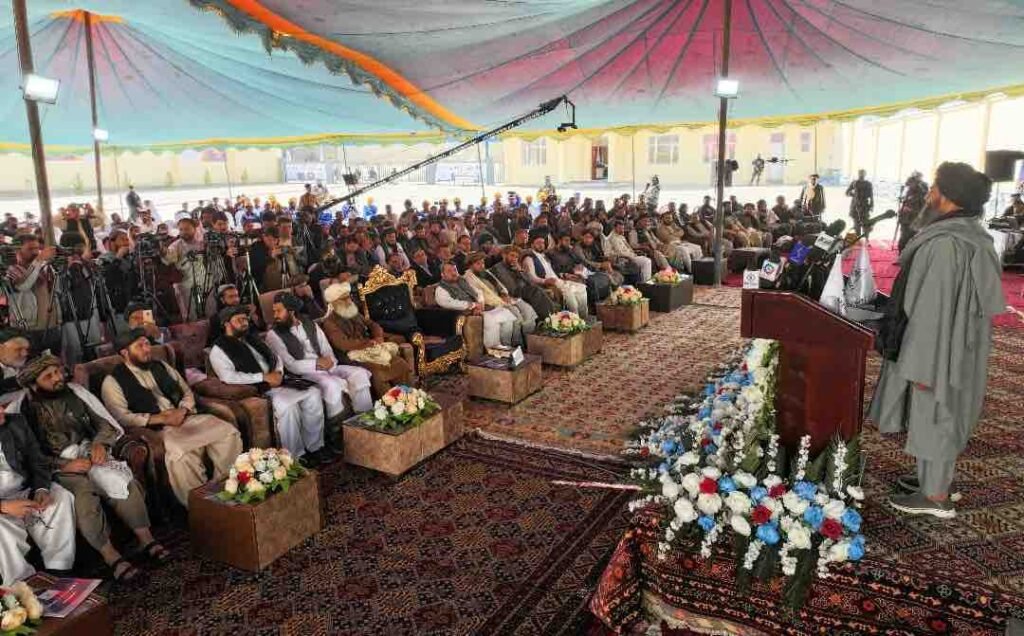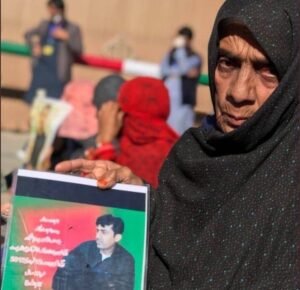Time for the Afghan Taliban to Delink from Pakistan and Focus on Other Neighbors in the Region

Photo: @DPMEA
By A. Shafaq
In the midst of rising tensions between Islamabad and Kabul, the Defense Minister of Pakistan has issued a stern warning to the Taliban government in Afghanistan. Khwaja Asif, in an interview with Voice of America on March 20, hinted at the possibility of Pakistan blocking the trade corridor that facilitates goods flow between Afghanistan and India. Asif emphasized that if Afghanistan continues to disregard Pakistan’s interests and fails to control the Tehrik-e Taliban Pakistan (TTP), Islamabad would reconsider providing access through its territory.
The recent escalation in tensions stems from alleged retaliatory strikes by the Taliban in response to Pakistani air raids, resulting in casualties, including innocent civilians. Islamabad maintains that its actions targeted TTP hideouts operating from the Afghan side of the border, responsible for launching attacks on Pakistani forces. Such incidents have historically led to the closure of trade routes and border crossings, significantly impacting bilateral relations between the two nations.
The trade corridor between Afghanistan and India holds considerable economic significance for Kabul. Over the years, trade with India has surged, reaching $570 million in the previous year, as per World Bank data. In contrast, trade with Pakistan has dwindled from over $4 billion a decade ago to less than $1 billion. Consequently, any threat of blocking the corridor evokes strong reactions in Afghanistan, where resentment towards Pakistan’s policies runs deep.
Many experts focusing on the region criticized Pakistan’s approach, labeling it as consistently detrimental to Afghanistan’s interests. They highlighted Pakistan’s tendency to deflect blame onto Afghanistan while neglecting its internal challenges. This sentiment underscores Afghanistan’s perception of Pakistan as an unreliable partner.
To further complicate matters, Pakistan’s decision to repatriate around 850,000 documented Afghan refugees back to their homeland next month adds strain to the already fragile relationship. Reports indicate that these forced deportations are part of Pakistan’s ongoing campaign to address domestic concerns, irrespective of their impact on regional dynamics.
Given the negative impact of these unilateral actions from Pakistan, it is imperative for Afghanistan to diversify its relationships and reduce its dependence on Pakistan. Relying on Pakistan for trade and being subject to its whims leaves Afghanistan vulnerable to economic instability and political manipulation. By cultivating relationships with a wider range of regional and international actors, Afghanistan can mitigate the risks associated with over-reliance on a single country.
Meanwhile, the Taliban’s announcement of investing $35 million in Iran’s Chabahar Port signals a shift in regional alliances and economic strategies. By reducing reliance on Pakistani ports, Afghanistan aims to diversify its trade routes and access international markets, primarily through India. This move underscores the deteriorating relationship between the Taliban and Pakistan, once staunch allies, now embroiled in mutual accusations and hostilities.
Pakistan’s sporadic closure of the border with Afghanistan, impediments to Afghan imports, and increased taxes on exports have further strained bilateral ties and adversely affected Afghanistan’s economy. The Taliban’s decision to turn to Iran for economic cooperation signifies a strategic move with broader regional implications.
India’s substantial investments in Chabahar Port since 2002 have positioned it as a key player in Afghanistan’s economic development, especially amidst strained relations with Pakistan. As Afghanistan’s economic ties with Iran and India strengthen, Pakistan faces the challenge of diminishing influence in the region.
The evolving dynamics between Iran, Pakistan, and Afghanistan underscore the complexities of regional geopolitics. As Afghanistan seeks to diversify its trade routes and reduce dependence on Pakistan, tensions between Islamabad and Kabul continue to simmer. The Taliban’s overtures towards Iran reflect a strategic realignment with implications for regional stability and economic development. Amidst these shifts, Pakistan grapples with the challenge of maintaining its influence in a changing geopolitical landscape.
A. Shafaq (pseudonym) is a researcher and lecturer at one of the private universities in Kabul.
Note: The contents of the article are of sole responsibility of the author. Afghan Diaspora Network will not be responsible for any inaccurate or incorrect statement in the articles.











